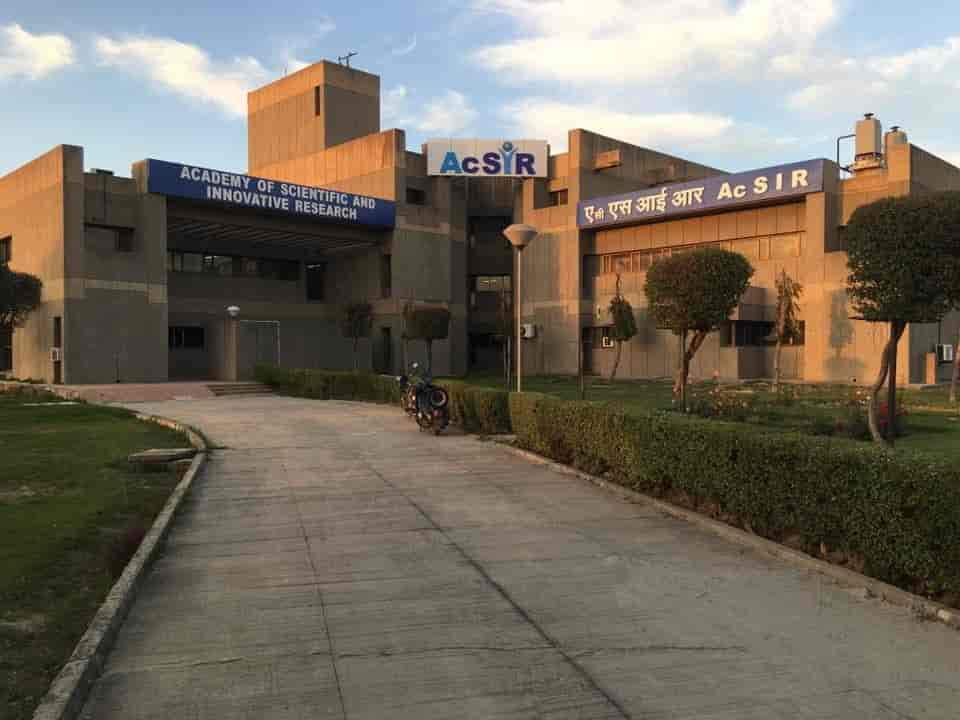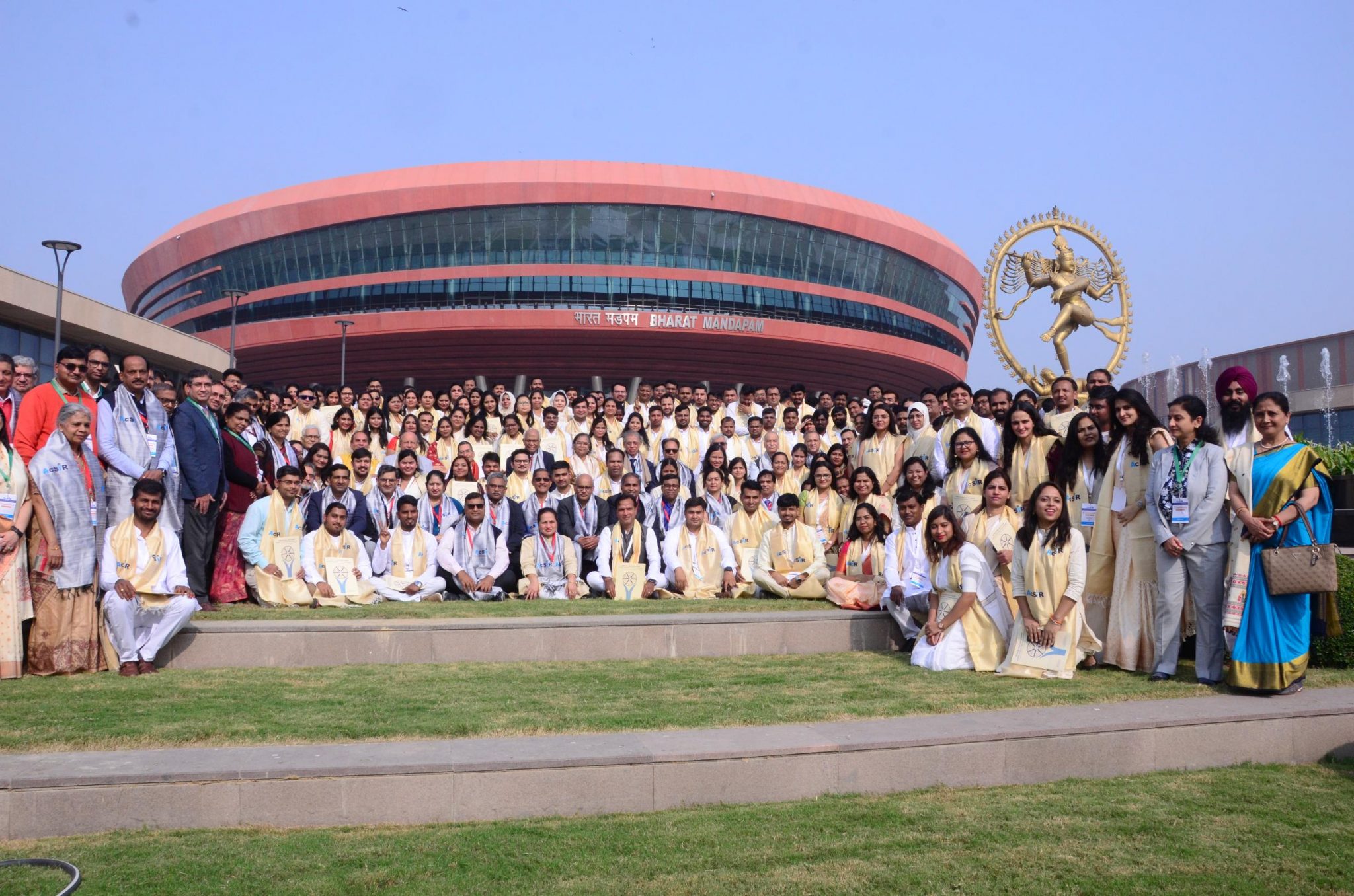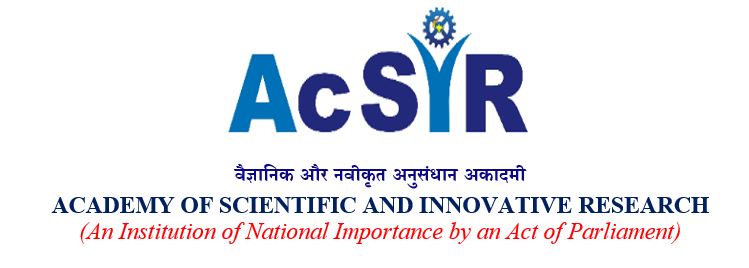


If you’ve ever wondered how India is shaping its scientific research landscape — especially by training the next generation of scientists and innovators — then understanding the Academy of Scientific and Innovative Research (AcSIR) is key. In this blog I’ll walk you through what AcSIR is, why it matters, how it works, and real-life case studies and FAQs to round things out. The aim: build awareness — legally, institutionally and practically — of this important body in India’s higher-education and research ecosystem.
What is AcSIR?
In plain conversational terms: AcSIR is India’s national research academy that offers postgraduate and doctoral level training in science, technology, engineering, mathematical and medical domains (STEM/STM) by leveraging a large network of national research labs.
Here are the key facts:
- AcSIR was established by the Council of Scientific & Industrial Research (CSIR) and formalised by the Act of Parliament (“Academy of Scientific and Innovative Research Act, 2011”) which was notified via Gazette on 3 April 2012. AcSIR+2AcSIR+2
- It is designated as an Institution of National Importance under Indian law. AcSIR+1
- Its headquarters is at Ghaziabad (Delhi-NCR region) and it functions on a hub-and-spoke model: the “hub” is administrative, and the “spokes” are research institutes across India (many CSIR labs and partner institutions) where the actual teaching and research happen. AcSIR+1
- Its mandate: to train high-quality researchers with inter-disciplinary knowledge, and to bridge the gap between academic research and real-world applications. NCL+1
So in summary: AcSIR = national body, research-centric, doctoral & postgraduate focus, leveraging existing labs/infrastructure across India.
Why does AcSIR matter?
You may ask: “Why is this special? Don’t we already have universities and IITs doing research?” Good question — yes, but here’s how AcSIR stands out, and why it’s important for India’s research & innovation ecosystem (and indirectly, from a legal-education awareness perspective too).
- Filling a gap in research-higher-education
Traditional universities often focus on coursework and conventional degrees (BSc, MSc) and may not always gear strongly toward frontier research, interdisciplinary work, innovation translation. AcSIR is designed to emphasise those areas. AcSIR+1 - Access to national research infrastructure
Because AcSIR partners with many CSIR labs, ICMR units, and other national research centres, students get exposure to high-end labs, equipment, and research projects. NIIST+1 - Interdisciplinary & innovative approach
One of the objectives is to integrate disciplines (biological, chemical, physical, engineering, computational, medical) and ensure research is not siloed. CMERI+1 - National significance & ranking
Being an Institution of National Importance gives it a special status under law (which often helps in policy, funding, autonomy). According to their own documents, AcSIR has awarded hundreds of PhDs, has several thousand students, and is ranked among top research-institutions. AcSIR+1 - Implications for legal awareness, rights & frameworks
From our perspective (legal awareness in India) this means:- It’s important for students/researchers to know their rights and status in such institutions (employment, scholarship, research ethics, IP rights)
- It also matters from policy/regulation side: how institutions of national importance are governed, how funding/grants work, how research output is treated under law.
- Knowing about such institutions helps in navigating the larger ecosystem of higher education law (UGC, institutions of national importance, affiliation, recognition).
How does AcSIR work (Structure and Programmes)
Let’s break down how this academy is set up and what programmes it offers — so a student, researcher or even a policy-aware citizen can understand how one engages with it.
Structure
- Hub-and-Spoke Model: The central administrative headquarters (“hub”) is at Ghaziabad, Uttar Pradesh. The spanning “spokes” are affiliated research institutions throughout the country (CSIR labs, ICMR, DST units etc). AcSIR+1
- These affiliated institutes serve as nodes where teaching, thesis-supervision, research labs etc happen.
- There is collaboration among national and international educational and research institutions. AcSIR+1
Programmes Offered
- AcSIR offers PhD programmes across a wide array of disciplines: Biological Sciences, Chemical Sciences, Physical Sciences, Agricultural Sciences, Mathematical & Information Sciences, Medical Research, Engineering Sciences. Institute of Nano Science and Technology+1
- It also offers Integrated Dual-Degree Programs (for example M.Tech + PhD) in engineering and research intensive streams. NCL+1
- Additional programmes might include M.Sc, M.Tech, MPH, PG Diploma etc depending on associated institute. AcSIR
Key Mission / Objectives
- Create highest quality personnel with cross-disciplinary knowledge and leadership in science & technology. IIITM Kerala
- Seamless integration of intellectual strengths with current market / societal needs. CMERI
- Provide opportunity to work in frontier and contemporary research areas (thus innovation + relevance) rather than purely traditional academic subjects. AcSIR
Why the “legal status” matters
Because AcSIR is defined by an Act of Parliament and designated Institutional of National Importance, it enjoys certain privileges and responsibilities:
- Recognised as degree-awarding institution, with legal status under Indian higher-education law.
- Its programmes, recognition, governance are backed by law — meaning students and faculty can rely on defined frameworks (admissions, curriculum, rights).
- For policy watchers, knowing such status helps understand funding flows, autonomy, quality standards, accountability.
Real-Life Case Study
Let’s take a simple example of how AcSIR has been leveraged in a real-world setting, to illustrate how it works on ground.
Case Study: Partnership with the Wildlife Institute of India (WII)
- In March 2022, the Wildlife Institute of India signed a Memorandum of Understanding (MoU) with AcSIR, which allowed WII to become an “Associate Academic Center” of AcSIR, through which students can obtain M.Sc and PhD degrees from AcSIR.
- This means a student specialising in wildlife science at WII would now benefit from AcSIR’s degree-awarding status, cross-disciplinary research possibilities, and institutional backing.
- It demonstrates how AcSIR doesn’t just function in traditional engineering/chemical labs but spans broader disciplines including environmental science, wildlife science.
- From a legal-awareness angle: students and academics need to understand the implications of such affiliations — e.g., degree recognition, accreditation, eligibility for further academic posts, intellectual property norms, etc.
Case Study: PhD Through CSIR-Lab Affiliation
- Suppose a researcher is working at a CSIR research lab (say in materials science). Through AcSIR affiliation, they register for a PhD, use the lab infrastructure, get a supervisor who is part of the CSIR lab but accredited as a faculty of AcSIR.
- The benefit: high-end infrastructure + national recognition of degree + network of other affiliated institutes.
- The challenge/consideration: the student must meet AcSIR’s admission criteria, the affiliated institute must have the necessary approval, and the research must align with AcSIR’s frontier areas of mandate.
These case studies show how AcSIR functions in practice and give a flavour of why it matters.
FAQs — Your Questions Answered
Here are some frequently asked questions around AcSIR, especially helpful for students, researchers or those interested in academic/legal awareness in India.
Q1. Who can apply to AcSIR programmes?
A: Eligibility varies per programme and affiliated institute. For example, for PhD, you typically need a Master’s degree (MSc/MTech) in relevant discipline, good academic record, sometimes qualifying exam, interview. The affiliated institute’s norms also apply. For Integrated Dual Degree, you may apply after a Bachelor’s. (Always check current admission notifications.)
Q2. Is a degree from AcSIR recognised?
A: Yes — being an Institution of National Importance and having the power to award degrees, an AcSIR degree is recognised under Indian law. That said, when applying for jobs/academia, always check specific eligibility criteria (some job adverts may specify certain disciplines, years of experience etc).
Q3. Does AcSIR charge high fees?
A: Fee structure depends on the programme and the affiliated institute. Some PhD programmes might be funded (stipend + fellowship) especially in research labs; others, especially self-sponsored, may require fees.
Q4. Can industry-sponsored candidates apply?
A: Yes — many affiliated CSIR labs and partner institutes allow both full-time research scholars and industry-sponsored / self-sponsored candidates. AcSIR+1
Q5. How long does a PhD under AcSIR take?
A: Duration typically depends on the discipline, research topic, progress of the student, lab situation, etc. Standard durations are similar to other doctoral programmes (3–5 years), but may vary.
Q6. What rights do students have under AcSIR?
A: As with most research institutions, students have rights related to: a safe research environment, clear supervision, access to resources, timely evaluation (coursework, thesis submission), fair assessment, publication opportunities. Plus, since it’s a national institution, norms for fellowships/funding, anti-harassment, research ethics apply.
Q7. What about intellectual property (IP) and research output?
A: If you’re doing research under AcSIR and a CSIR lab or partner institute, IP norms will depend on the lab’s policy, the funding terms, and AcSIR’s guidelines. It’s wise to clarify in advance: who owns the IP, how publication rights work, how industry collaboration is handled.
Q8. How does AcSIR rank compared to other institutions?
A: According to its own reports, AcSIR is ranked among the top research institutions in India (e.g., 11th in certain “Research Institutions” category) and has awarded large numbers of PhDs. AcSIR+1
Q9. I am from a remote area / minority community / differently-abled. How inclusive is AcSIR?
A: Since AcSIR is a national institute, norms of reservation (SC/ST/OBC/PwD) under Indian law apply for admissions, fellowships, etc. One should check the specific admission notification of the year for detailed eligibility. From legal-awareness perspective, it’s important to be aware of your rights and entitlements under reservation law and higher-education policy.
Q10. If I get admission, what should I be careful about?
A: Ensure you understand: the affiliated institute’s responsibilities, your supervisor’s credentials, milestone expectations (coursework, proposal submission, publications), funding/stipend, resource access (labs, equipment), intellectual property arrangements, and what happens if the research topic changes or you wish to withdraw. Having clarity helps avoid disputes later.
How this ties into Legal & Policy Awareness in India
Since our mission is to promote legal awareness, especially in the context of education and research, here’s how AcSIR helps serve that broader narrative:
- Higher Education Law: AcSIR being an Institution of National Importance means it operates under specific legislation, so understanding its legal status helps students know what protections/rights they have.
- Research & Innovation Policy: India is increasingly focusing on innovation, patents, industry-academia links. Institutions like AcSIR embody that shift, so awareness of how research programmes are structured, what rights students have, what obligations they are under is useful.
- Student Rights & Governance: In large national institutions, issues like safe research environment, equal access, funding, grievance redressal become very real. Knowing your rights (e.g., under University Grants Commission regulations, or other central higher-education norms) matters.
- Inclusivity and Access: For students from under-represented groups (SC/ST/OBC/PwD/minority), awareness of reservation/benefit provisions, scholarship norms, supportive infrastructure is vital.
- Credential Recognition and Career Mobility: If a student obtains a degree from AcSIR, they should know how that credential is viewed in academia/employment, what additional certifications or clearances they might need, and how to navigate those legal frameworks.
- Ethics, IP, and Research Misconduct: In research institutions, issues of ethics (plagiarism, authorship, data integrity), IP rights, supervision conflicts may arise. Students must know legal/regulatory norms to safeguard their interests.
“In a Nutshell” – Quick Summary
- AcSIR = India’s national research academy, empowering postgraduate/doctoral research in science & technology across the country.
- It is legally recognised, institutionally significant, and offers distinct advantages via its national labs-network model.
- For a student/researcher: it opens a doorway into high-end research with degrees that are nationally recognised.
- From a legal/rights perspective: good to know your eligibility, rights, obligations, funding/stipend norms, supervision structure, IP arrangements etc.
- From a policy/awareness perspective: institutions like AcSIR represent India’s push in research & innovation — so being informed helps you participate in, benefit from, or critique that push in an informed way.
Final Thought
Whether you are a prospective student, a parent, a researcher, or someone engaged with legal-education / awareness efforts in India, understanding institutions like AcSIR is beneficial. It empowers you with knowledge of what the institution is, how it functions, and what your rights and opportunities can be within that framework. Equipped with that knowledge, you can make informed decisions — be it choosing a programme, negotiating supervision, or seeking redressal or clarity on rights and obligations.
